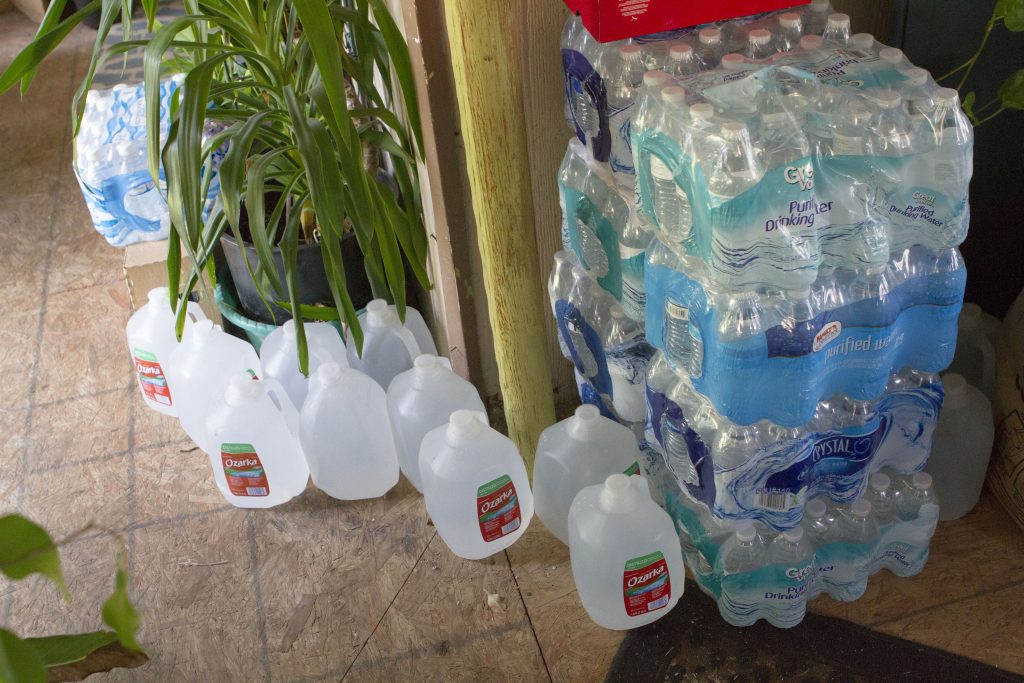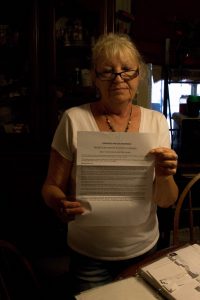Millions of Americans turn to bottled water, but is bottled better?

Bottled water piles up in the home of Texas resident Leroy Thomas, who has long relied on bottled water. (Photo by Brandon Kitchin/News21)
PHOENIX – When Bonnie Sicard of Beebe Plain, Vermont, started receiving notices about arsenic in her drinking water more than than five years ago, she wasn’t going to risk poisoning her family. She went straight to bottled water.
“I got seven grandsons,” she said. “When they used to come over when they were little, we didn’t let them drink the water.”
Maine officials often recommend bottled water when they find traces of arsenic because it’s less expensive than water treatment options.
However, the cost adds up over time. Sicard spends about $20 a week, she said.
Bottled water has become the No. 1 beverage choice in the U.S., with 12.8 billion gallons sold in 2016, according to the Beverage Marketing Corporation. Wholesale sales totalled $16 billion last year.
But bottled water can come from many sources, but most of it is either spring water or purified tap water.

Bonnie Sicard of Beebe Plain, Vermont, holds up a boil water advisory. She drinks bottled water. (Photo by Fionnuala O’Leary/News21)
About 45 percent of bottled water, including leading brands Dasani and Aquafina, comes from public tap water that is treated before being bottled, according to the companies’ websites and California-based scientist Peter Gleick, who wrote the book “Bottled and Sold.”
Arizona State University professor of practice Elisabeth Graffy, who used to work at the U.S. Geological Survey, said consumers shouldn’t assume any bottled water is completely safe.
“You should be able to trust tap water more than bottled water,” Graffy said. “Bottled water is actually not regulated the same as tap water.”
The Environmental Protection Agency monitors public water supplies, and it makes violations available to the public. The U.S. Food and Drug Administration monitors bottled water.
While there are some similar regulations, according to a 2010 analysis by the nonprofit EWG, 18 percent of bottled water brands do not provide customers with the source of the water, and 32 percent do not give any information about how the brands test the water.
A 2008 study by the same group found 38 pollutants – from industrial chemicals to bacteria – in 10 brands of bottled water.
However, Graffy said consumers must make the choice.
“There are concerns when you’re talking about the implications of people relying on bottled water,” Graffy said. “But then, you compare that to the concern of water that you know is contaminated … that may be a risk that is fine.”
To see the full News21 report on “Troubled Water,” go to troubledwater.news21.com on Aug. 14.